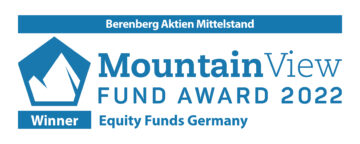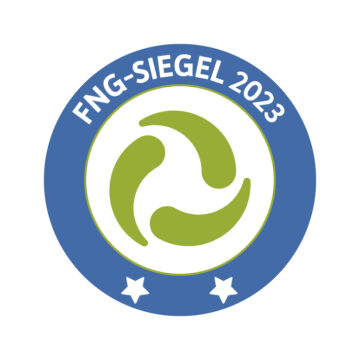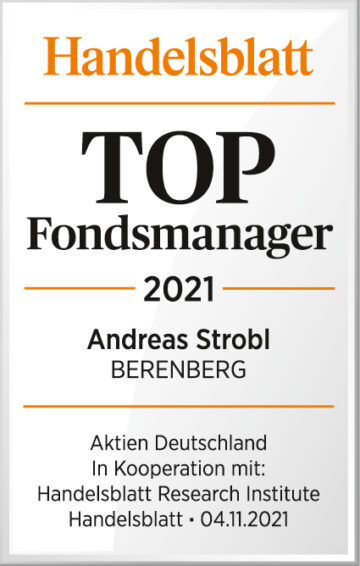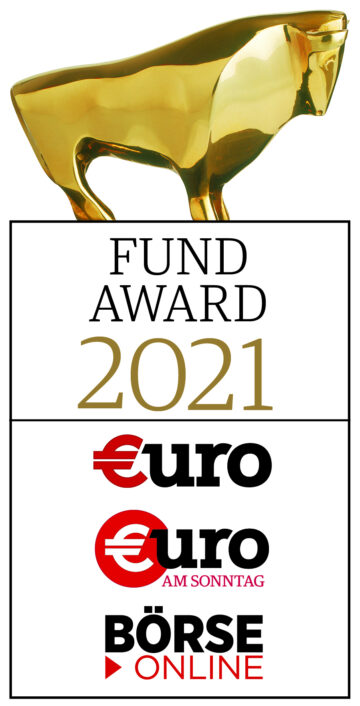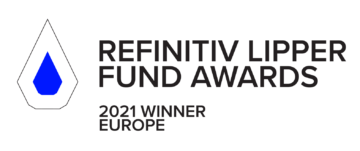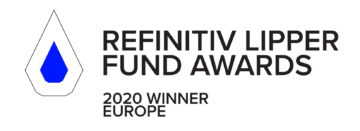Investment Strategy
Hidden champions with above-average growth and leading products can be found especially in the German small cap segment. The focus of Berenberg Aktien Mittelstand is on established niche companies that have focused business models and strong market positions both in their home markets and globally. The strategy is based on a disciplined bottom-up stock selection, focusing on companies with excellent business models, strong entry barriers and top management – many of them owner-managed.
- Concentrated portfolio of 25-45 stocks
- Mid-cap approach; small- and micro-caps can be added
- Long-term investment horizon and low portfolio turnover
- Benchmark-agnostic selection
Learn more about our investment philosophy in equity fund management
Further details on the opportunities and risks of this fund can be found in the sales prospectus.
Indexed performance
Performance in 12-month periods
Currencies
Sectors
Countries
Asset classes
Top Holdings
Monthly market comment
The announcement of new elections in France has recently led to increased volatility on the European equity markets. The Berenberg Aktien Mittelstand outperformed its benchmark in June. The Suess Microtec share performed positively following several analyst studies on the company and the ongoing AI capex cycle. The announcement of a business takeover of GoCanvas in the US led to a strong performance of Nemetschek share. Nabaltec share also performed well in June after the company published solid results for the first quarter. However, the share disappointed investors after Carl Zeiss Meditec published a profit warning for the current financial year. Aixtron's shares also performed negatively in June, as GlobalWafers significantly downgraded its SiC outlook for 2024. Despite the announcement of an order from the US government, Evotec shares disappointed investors. In June, we increased our positions in Sixt, Carl Zeiss, Jenoptik, Wacker Chemie and Bechtle and reduced our holdings in Rational and Redcare Pharmacy.
Portfolio Management

Andreas Strobl
Andreas Strobl has been a Portfolio Manager at Berenberg since November 2016. He began his professional career in 2002 as a Sell-Side Analyst at BayernLB in Munich. In 2006, he moved to Allianz SE (Aequitas GmbH) as a senior Investment Manager. Since 2015, Andreas Strobl has worked as a Senior Portfolio manager at Allianz Global Investors in Frankfurt, where he was responsible for the management and development of various European Small/Mid-Cap equity portfolios. He studied business administration at the LMU in Munich. In 2005, he graduated at the top of his class as a CIIA (Certified International Investment Analyst) and CEFA (Certified European Financial Analyst).

Sebastian Leigh
Sebastian Leigh has been Portfolio Manager at Berenberg since October 2017. Previously, he spent three years as an Associate in the Assurance division of EY, with a primary focus on automotive and healthcare companies. He studied Accounting and Finance at the University of Kent.
Consideration of ESG Elements
Identifying companies and business models that will be successful in the long term is the basis for good investment decisions. Environmental, Social and Governance (ESG) factors are key factors in decision making and are therefore integral
components of the investment process.
CO₂-Intensity
The fund does not actively manage its carbon footprint, however, emissions data such as CO2 intensity are relevant parameters which can be used to assess the efficient management of a company and the extent of transition risks.
ESG Score
The data provider MSCI ESG uses an ESG score of 0 to 10 to assess the management of material ESG risks of portfolio holdings compared to competitors.
ESG Controversies Screen
Investments in the fund are monitored for ESG controversies and, with the help of MSCI ESG data, flagged according their severity. Thereby, potential ESG risks of investments are identified. In the case of an orange flag (severe controversy), we enter into an active exchange with the company. In the case of a red flag (very severe controversy), the company is excluded.

